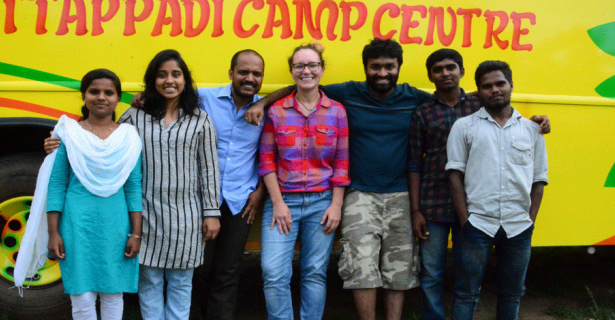It’s been over a month since I wrapped up my summer project, but the learnings from this summer are still seeping in. What do we do when we face issues for which we do not have any easy or quick solutions?
The biggest learning experience for me during this two-month summer venture was that in this age of increasing automation, there is still a very real necessity for deeper people-to-people engagement in our communities. We, as mentioned in my earlier blogs (Blog-1 and Blog-2), started our summer with a quest of bringing unheard voices to light and providing a platform where a community can identify and prioritize the problems they face and arrive at solutions that suit their conditions in the best ways possible.
We started with a clean slate. We had a clear idea of what we wanted to achieve, but as for the methodology, we were unsure how to proceed, primarily because we realized that the issues involved in any endeavor are only exposed once the rubber meets the road.
After intense ground-level engagement I left with significant lessons in the sphere of community engagement – the importance of the language that people speak, of understanding the media consumption patterns of that community, of reaching out to all stakeholders, and most importantly of assuring the people who are participating in the process that they will not be misrepresented or exploited. All these are standard journalistic practices, but the most valuable lessons I learned were was the extent I had to go to in order to ensure that we did not habitually jump to conclusions and identify the issues ourselves. It was easier said than done.
There was also a bit of a disagreement between us and some of our advisors on the identification of the issues and the way forward. While we, as I explained in my first blog, came up with the issues that we wanted to cover based on the amount of input we received on a particular issue, some local advisors felt that people did not come out with their ‘actual’ problems as they were reluctant to open up to strangers. It was, for me, a clear case of disconnect between the policy makers, experts, and the people.
When the video was done, it was aired on a local cable TV channel, and got good reviews from most quarters. We were ecstatic that the first goal was struck and all we needed was a bit of nudge to sustain the momentum.
But once we left the area it became a difficult proposition to continue the momentum, primarily because people were reluctant to engage without a stronger stimulus. To counter this, we hired a couple of interested youngsters who were involved with us during the summer, but due to the cash crunch we could not initiate a long-term project in the area.
My summer project is also a basis for my graduate thesis which is a necessary component to complete my Master of Arts in Law and Diplomacy at The Fletcher School. As a part of my graduate thesis I am looking into fine tuning the operational model of the venture in a way that rectifies the short comings of both traditional media and social media and will help us create a medium that straddles in the space between these two spheres.
My quest to go on ground and gain this rich experience would not have been possible without generous help of the Institute for Global Leadership. I, personally, and we, as a team, would like to extend our heartfelt gratitude to the Institute and look forward for further fruitful engagement together in the future.

